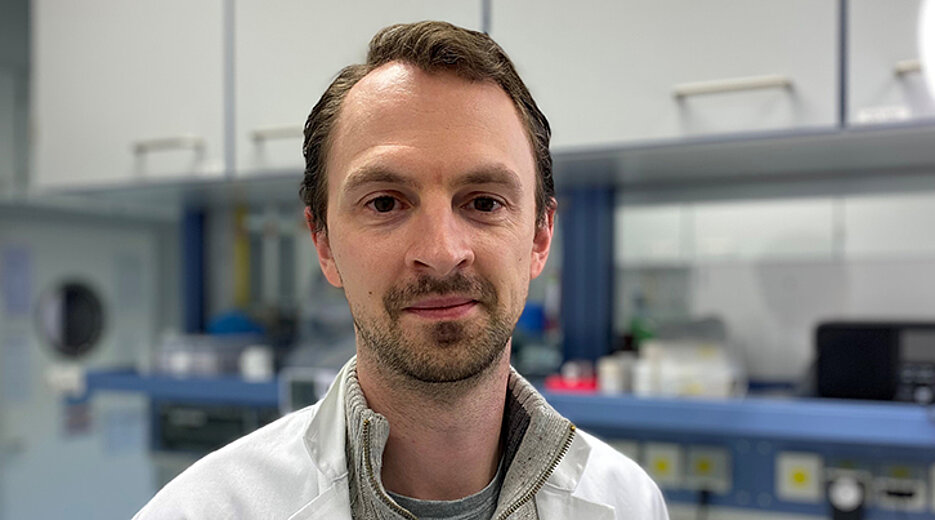ERC Starting Grant for Kai Kretzschmar
01/10/2022Cancer researcher Dr Kai Kretzschmar wants to find out why oral cancers are so heterogeneous. He is receiving funding of 1.77 million euros for this project.
Oral squamous cell carcinoma is the most common malignant tumour type in the oral cavity. It differs greatly from patient to patient, for example, in terms of the development of metastases or the response to therapy.
Why is this cancer type so heterogeneous? Dr Kai Kretzschmar wants to find out in his new project OralNiche.
The junior group leader at the Mildred Scheel Early Career Centre for Cancer Research Würzburg is receiving top-class funding for this: the European Research Council (ERC) has awarded him a Starting Grant of 1.77 million euros. This award is given to outstanding young researchers in a Europe-wide competition.
The Mildred Scheel Early Career Centre is a joint venture of the University Hospital (UKW) and Julius-Maximilians-Universität Würzburg (JMU) in Bavaria, Germany. The centre was initiated by a grant of ten million euros from the German Cancer Aid in July 2018.
Focus on stem cells of the oral cavity
The new project focuses on the oral epithelium. This is the uppermost cell layer that lines the oral cavity and tongue. It is unique because of its structural diversity and its distinct microenvironments (niches). To understand its heterogeneity, it is necessary to look at the stem cells that maintain the epithelium through constant division. So far, little is known about the site-specific proliferation and differentiation of these cells.
This is about to change: "For the first time, we will systematically and comprehensively characterise the different pools of oral epithelial stem cells," says Kretzschmar. His team wants to decipher the mechanisms underlying the diversity of the oral epithelium and define their contribution to the heterogeneity of oral squamous cell carcinomas.
In the end, the Würzburg-based cancer researcher also wants to understand why oral cancers respond so differently to therapy. For patients, this could lead to improved treatment. "Our findings could also be transferable to other tissues and tumour types and thus be a model approach for cancer research," explains Kretzschmar.
Career of the ERC grant recipient
Kai Kretzschmar, born in Berlin in 1985, studied biology in Frankfurt am Main and Cambridge (UK). He then completed his doctorate at the University of Cambridge in 2014 with a topic on the cell biology of skin. For his doctoral thesis, he received the 2015 Nikon Young Scientist Award of the German Society for Cell Biology.
After his doctorate, he moved to the Hubrecht Institute in Utrecht (The Netherlands). There he worked on skin stem cells and heart regeneration. He also developed novel organoid models to study the skin epidermis and immunotherapy against colon cancer.
To fund his postdoctoral research, Kai Kretzschmar received several prestigious fellowships from the European Molecular Biology Organization, the Human Frontiers Science Program Organization and the Dutch Research Council.
In 2020, the biologist returned to Germany. Here he established a junior research group at the Mildred Scheel Early Career Centre. Funded with around 1.2 million euros from the German Cancer Aid, his team has since been investigating the cellular and molecular basis of head and neck cancer.
Thanks to the 1.77 million euros from the ERC, Dr Kretzschmar's group can now expand further. One postdoctoral and two doctoral positions are currently planned for OralNiche. Life sciences students can also complete internships or bachelor's and master's theses in the lab.
Contact person
Dr Kai Kretzschmar, Mildred Scheel Early Career Centre for Cancer Research, Institute of Virology and Immunobiology, University of Würzburg, T +49 931 31-88085, kai.kretzschmar@uni-wuerzburg.de







